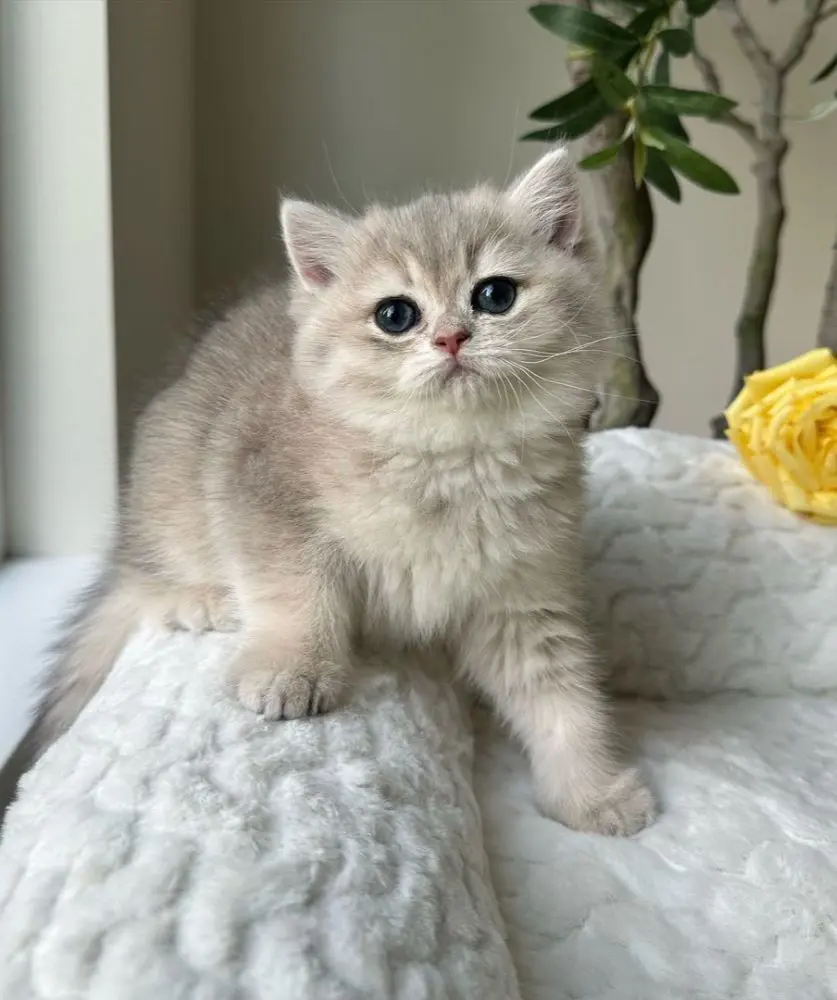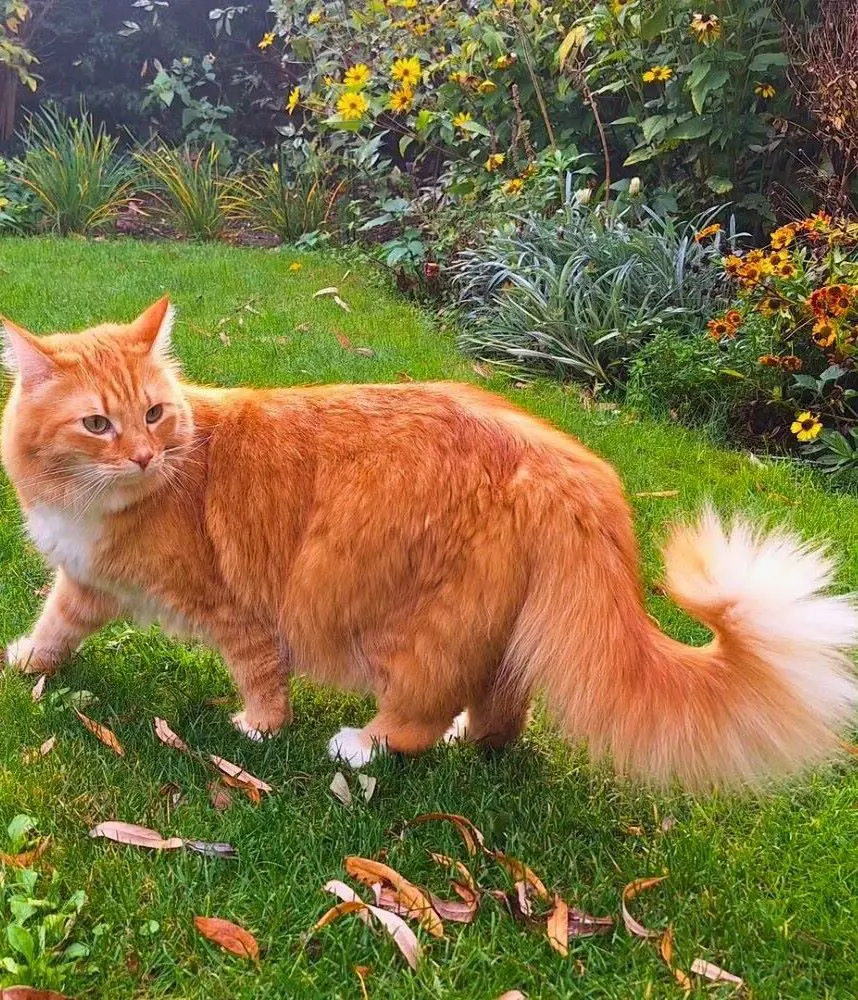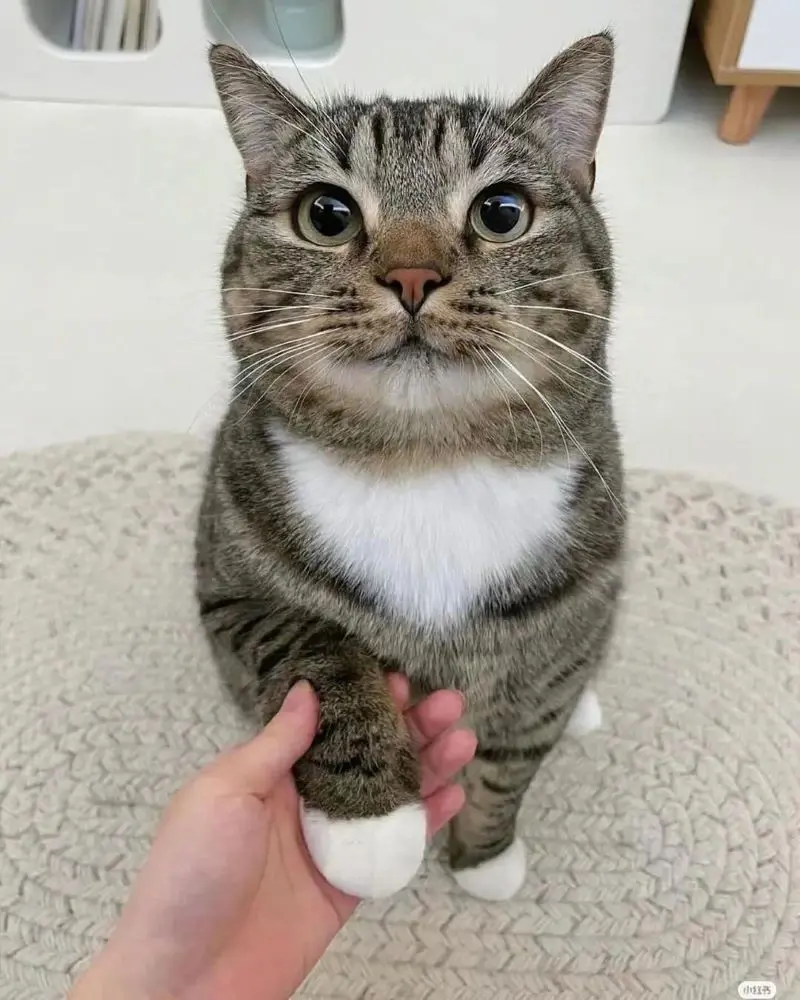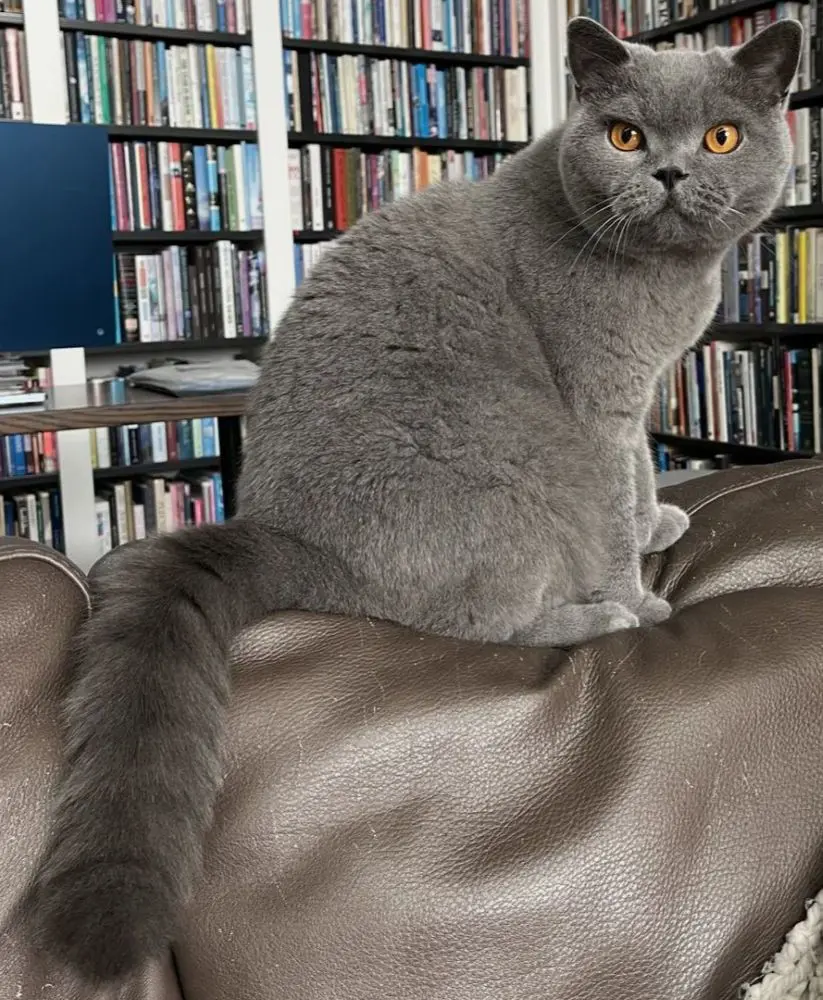Why Do Cats Eat Grass?
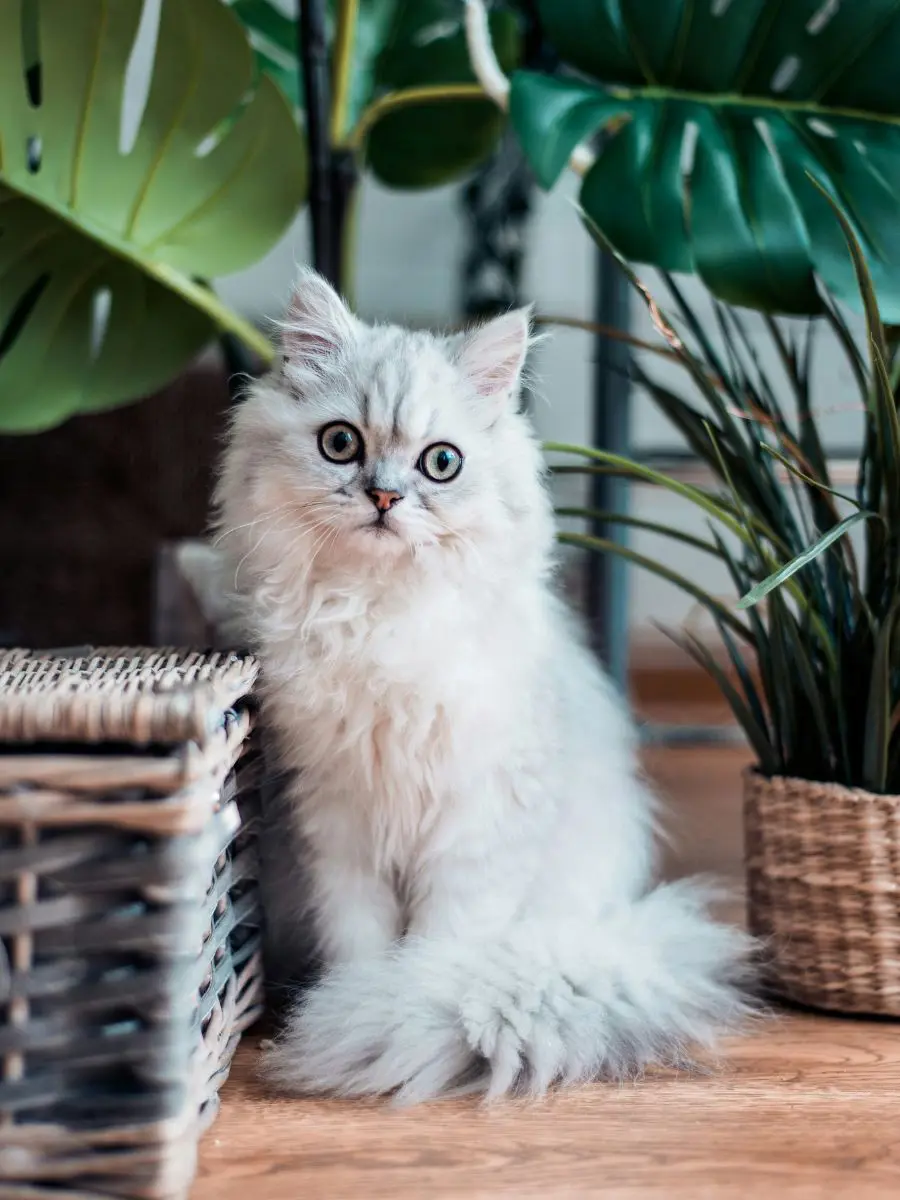
Eating grass is a common behavior observed among domestic cats, sparking curiosity and speculation among pet owners and veterinarians alike.
Observations suggest that even well-fed cats with no apparent nutritional deficiencies engage in this habit, indicating that it may be rooted in instinctual drives or other underlying factors.
Helps In Digestion
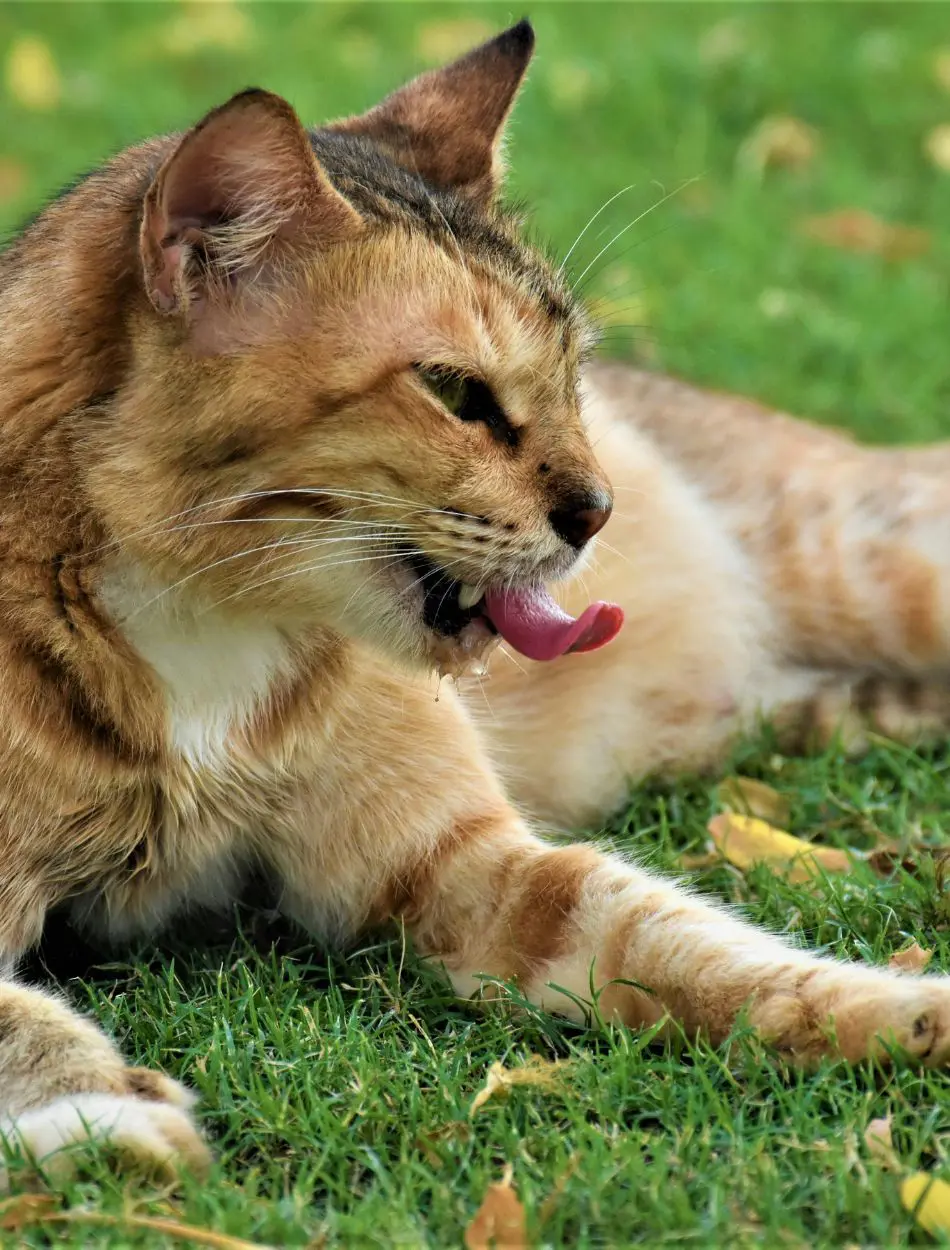
Munching on grass stimulates the release of digestive enzymes in the mouth and a yellow-green fluid from the liver, which helps break down food for better digestion. As a result, cats have developed a habit of chewing on plants to support and simplify their digestive process.
Additionally, cats often lick their own fur—and that of their young—during grooming, which leads to the ingestion of indigestible hair. Eating grass can help them vomit naturally, allowing them to expel this hair and empty their stomachs.
While there are now several indoor pots specifically designed for pets to safely chew on plants, many cats still prefer outdoor grass. However, this exposes them to potential risks, as outdoor greenery may contain harmful substances like pesticides or pollutants.
Nutrient Intake
Cats may not receive all essential nutrients from their regular diet, which is why they sometimes eat grass to supplement their nutrition. Grass contains nutrients such as folic acid and fiber, both of which are important for a cat’s overall health.
Folic acid plays a key role in the production of hemoglobin, supporting oxygen transport in the body. When your furry friend eats plants, they are supplementing their diet with this vital vitamin, which aids various bodily functions. By consuming grass, felines may be instinctively trying to improve their nutrient intake and support their overall well-being.
Parasite Control
Cats likely chew grass to cleanse their digestive systems of gut parasites. This behavior may be driven by instinct, helping them support healthy digestion and eliminate internal parasites. By eating grass, cats often induce vomiting, which can help expel worms or other harmful substances from their stomachs. It’s as if they instinctively know how to keep themselves healthy from the inside out.
The rough texture of plants makes it easier for cats to vomit, helping to remove unwanted bugs and worms that may reside in their digestive tract. By consuming greenery, pets may be using a natural method to manage and reduce the risk of parasite infections. This vomiting can also help eliminate other indigestible materials or substances that parasites may be carrying.
Natural Instinct
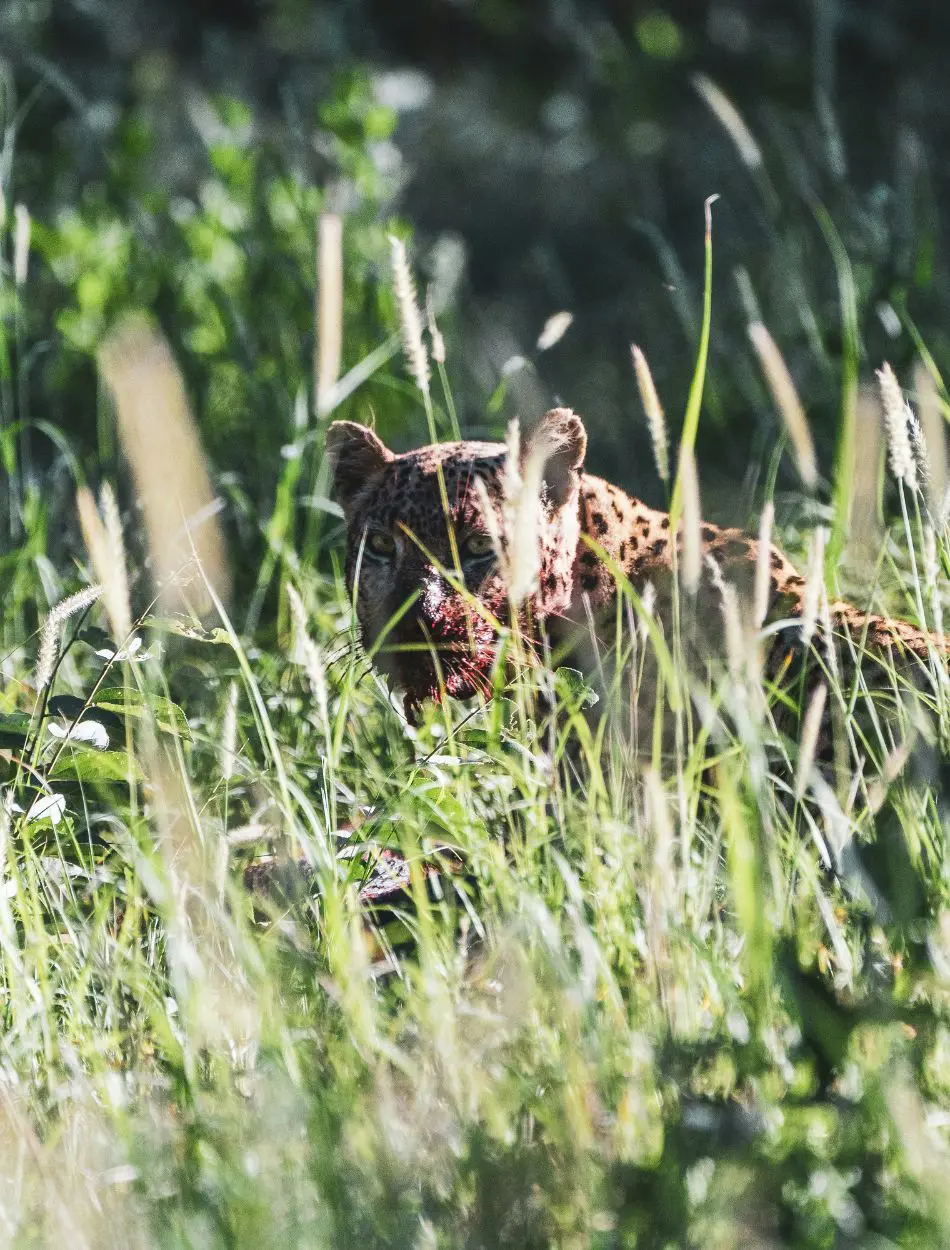
Grass-eating in cats is believed to be an instinctual behavior inherited from their wild ancestors. This behavior has been observed in both domestic cats and wild felines, suggesting it may have evolutionary significance.
Even when cats are fed a complete and balanced diet, they may still display this instinctual behavior. One theory is that wild cats often consumed the stomach contents of their herbivorous prey, which included plant material. As a result, domestic cats may chew grass as a way to mimic this aspect of their natural diet. Since it's considered a normal behavior, this could explain why even the most well-cared-for and well-fed cats still engage in grass-eating.
Curiosity
It is quite common for cats to eat grass, as curiosity is one of their most basic traits. Their instincts drive them to explore new environments, often by tasting or sniffing different textures and flavors—including vegetation.
Cats naturally investigate their surroundings and search for food, even if what they find isn't nutritionally valuable. Grass, for example, offers little in terms of nutrition, but when cats chew on greenery, they may simply be exploring and trying to understand the world around them.
Sniffing and nibbling are part of how cats learn about their environment. Although grass isn’t a typical food source for them, it provides sensory stimulation and satisfies their curiosity, making them feel as though they are discovering something new.
Taste Preference
To cats, plants can be tasteful, their natural food is mainly represented by meat; however, eating grass in some furry pets has proved that they do like its taste. Such a preference for greenery may be a result of freshness and light flavors which sod adds to their diet and are not found in pet food.
A cat will be interested in the novel sensation that plants provide. For a pet accustomed to dry kibble or other processed, dried diets, the little sweetness of fresh plants might be appealing. Therefore, the taste shift could be renewed for them. Last but not least, depending on the variety and growth circumstances, furry pets may find themselves drawn to certain inherent plant flavors.
Oral Health
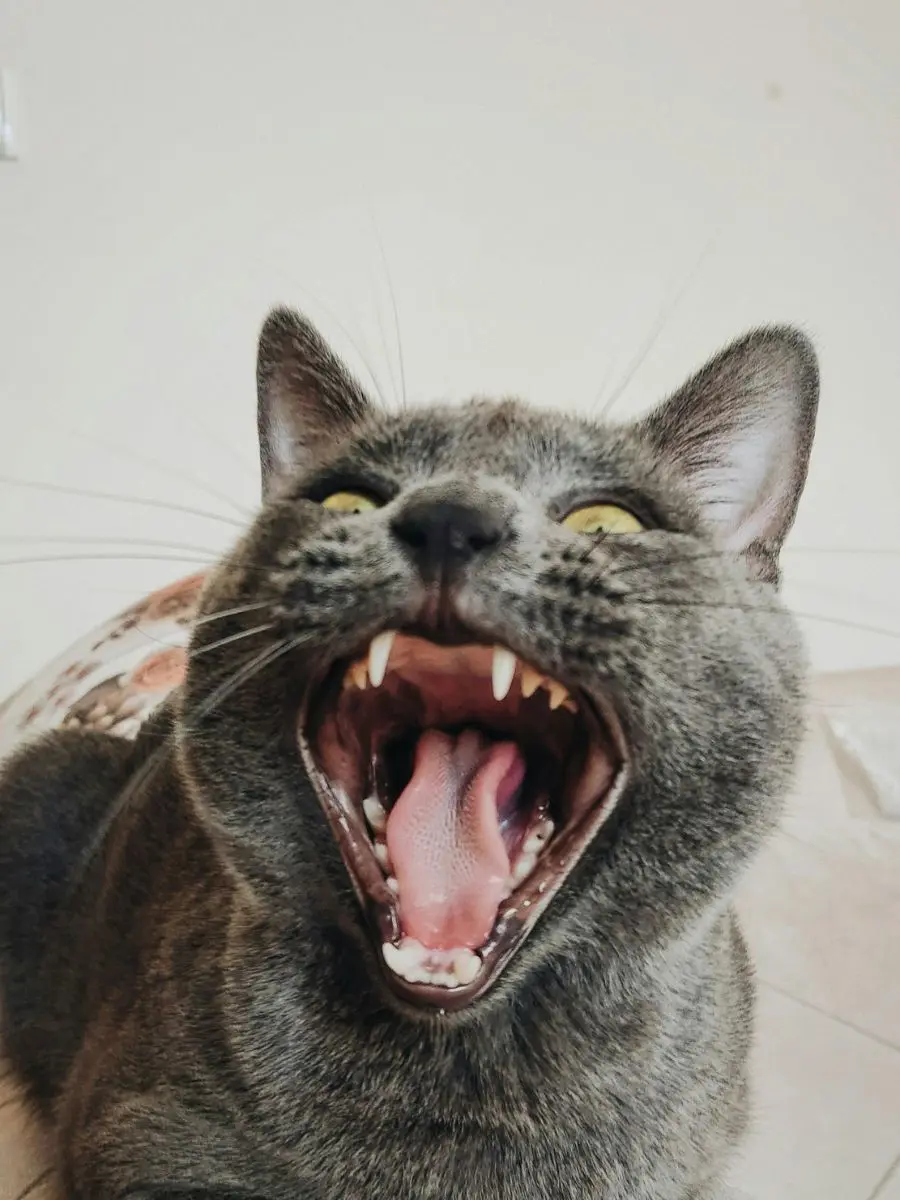
They also crunch plants to clean their teeth, chewing would rid their teeth of food particles and plaque. It might keep their gums healthy and breath fresh.
The grass works as a natural toothbrush, with its robust leaves scraping down food and gunk from teeth. This helps pets that don't get brushed often or that just can't eat special dental treats.
It can also relieve the risk of some tooth-related problems, such as swollen gums and gum diseases, that many cats are at risk from. The saliva sort of cleans their mouth and stops bad bacteria from growing too much. Grass is eaten by kitty due to this reason, and they seem to clean their teeth on their own.
Pica
This is also an animal disorder whereby an animal has the urge to eat non-food materials or substances. Eating greenery may be one of the ways that shows that a kitty is suffering from pica.
This might be caused by some genetic tendency, stress, anxiety, or even nutritional deficiency for doing so. A cat with pica will always nibble or eat many non-food items or substances like clothing materials, plastics, and in this case, grass.
Anxiety and stress may also be a reason for pica in cats. Being sensitive animals, they will respond to any change introduced in the routine, environment, or fellow pets. This stressed feline, therefore, may reach some relief or even find a kind of distraction from eating plants.
Hydration
Cats that do eat grass could therefore be better hydrated, particularly if they are not drinking enough water. As descendants of desert-dwelling animals, felines have a normally low thirst drive and usually get most of their water from their food, which would have been damp in its natural state.
This, again, is a problem for domestic pets and, even more so, for those on a dry food diet to remain adequately hydrated. Chewing plants also stimulate salivation, which wets them in the mouth and thus facilitates digestion.
In medical conditions like renal disease or urinary tract anomalies, cats are required to drink plenty of water. That being the case, perhaps the kitty by instinct attempts to control the consumption of water by eating greenery and thus always remaining well-hydrated for normal bodily functions.
Relieving Boredom
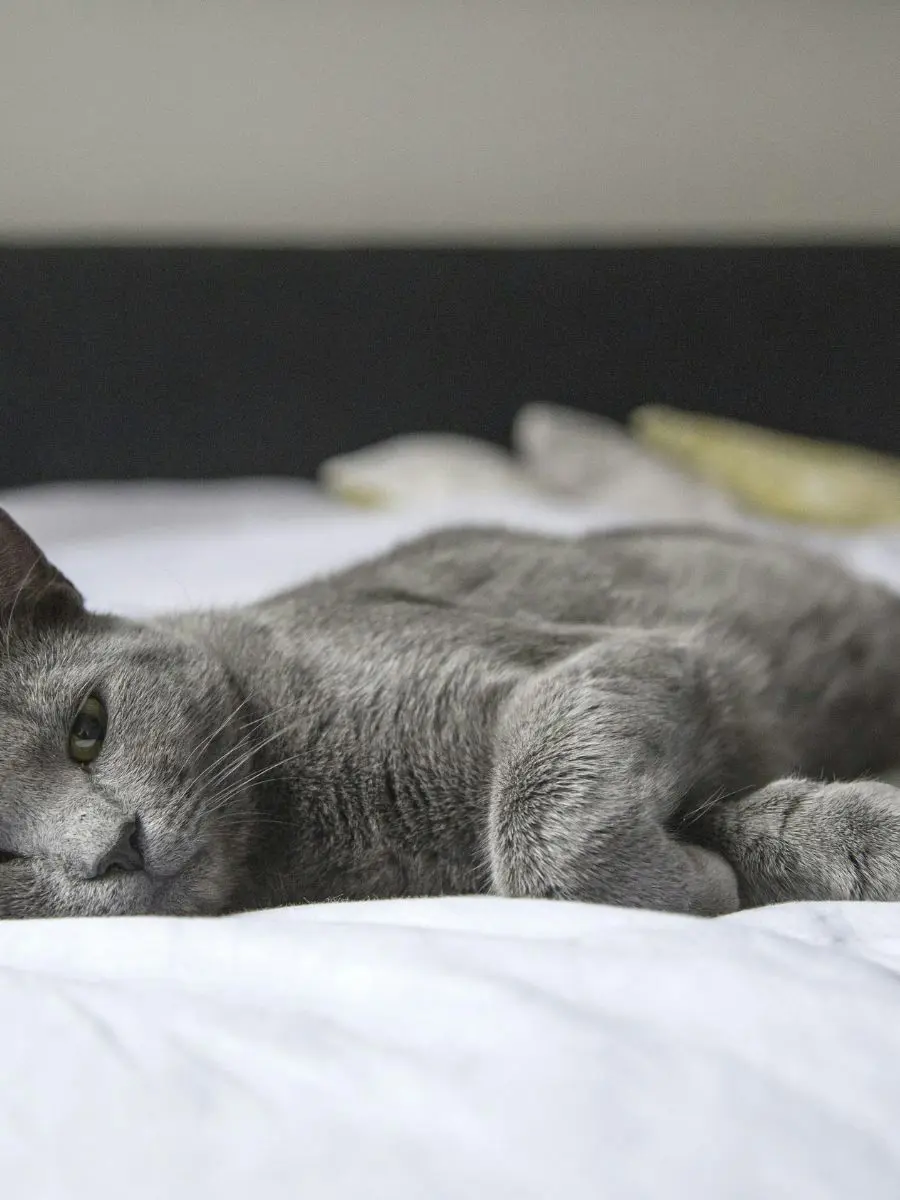
Indoor cats can eat grass to the point of boredom or just to amuse themselves, which is also related to their instincts and the environment they have. While an outdoor pet will probably have much more stimuli and activities to engage in, an indoor kitty has little or none at all.
In contrast, indoor furry pets lack the variety found outdoors, the sights, sounds, and experiences accrued from hunting. Grass is an extremely interesting texture and flavor to many cats, whether they were raised indoors or have caught a glimpse of it briefly outdoors.
Is It Good For Them To Eat Grass?
The excess eating of greenery can be bad for pets but if the pet is munching on plants only once or twice it is safe and good for them.
The grass should be free from any toxic substance that may be poisonous to pets if it contains any harmful substance that is not good for furry pets the pets can be in a not-so-good behavior or health. Felines can get poisoned easily because of their controlled diet and habits.
Just make sure your pet does not get used to this habit. Grasses are tough to digest, and if your furry friend ingests too much of it or swallows long blades, it can clog up the insides. While some kitties are munching on greenery, you'd have to monitor them to stop them from eating dirt and other stuff in the plant pots.
Should I Give My Cats More Grass To Eat
Generally, it should be okay to give your furry pets a little more greenery if he/she has the appetite for it and doesn't seem to have any health issues from eating it.
Ensure the plants are free of pesticides or any other type of chemicals. Allow some greenery in the diet because excesses may provoke episodes of vomiting or diarrhea.
Always make sure you supervise your furry pet while it is eating grass so it won't consume large quantities of it at once. You can grow pet plants by yourself, indoors in safe and controlled conditions.
Observe the pet's general health condition of the pet and changes in behavior; if he shows any signs of an adverse reaction, seek advice from a veterinarian. Add any pet-safe plants that your cats are going to love, and enable them to exercise some of those natural foraging behaviors for enrichment.
How Can I Stop Cats From Eating Grass?
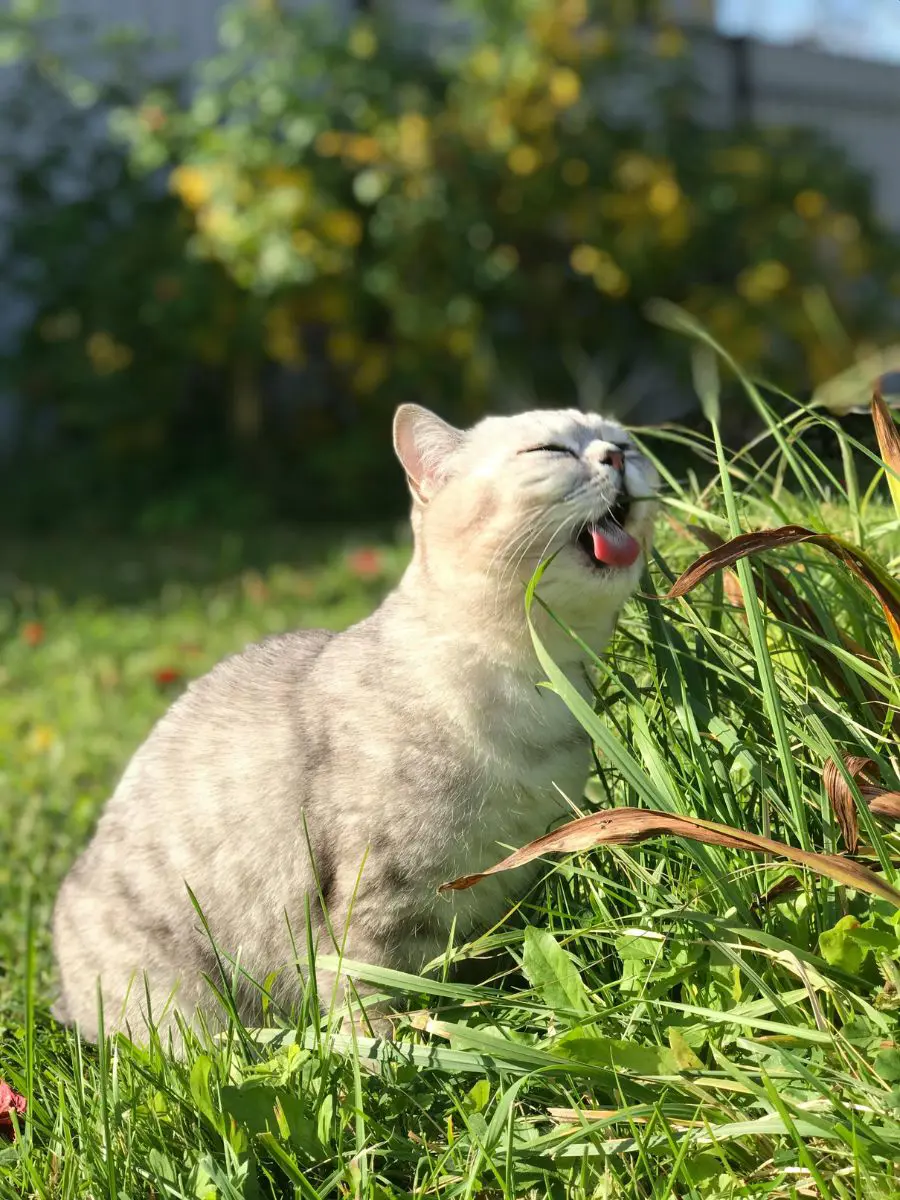
Keep your pet indoors or deny access to areas with greenery, and offer pet-safe plants or toys that have a feel of grass on which furry pets can chew to their heart's content. Apply pet-friendly, deterring sprays on plant areas to make them less inviting.
Augmented play and activities will keep the cat occupied both mentally and physically, hence encouraging it to stop eating greenery. Providing a proper, fiber-rich diet for the pet could be even less responsive to additional fiber intake by eating plants.
Constructing barriers or putting up a fence makes it difficult for the pet to access large areas of greenery. Keep healthy treats or snacks in front of the kitty to distract it from its need to graze on grass.
Pros And Cons Of Cats Eating Grass
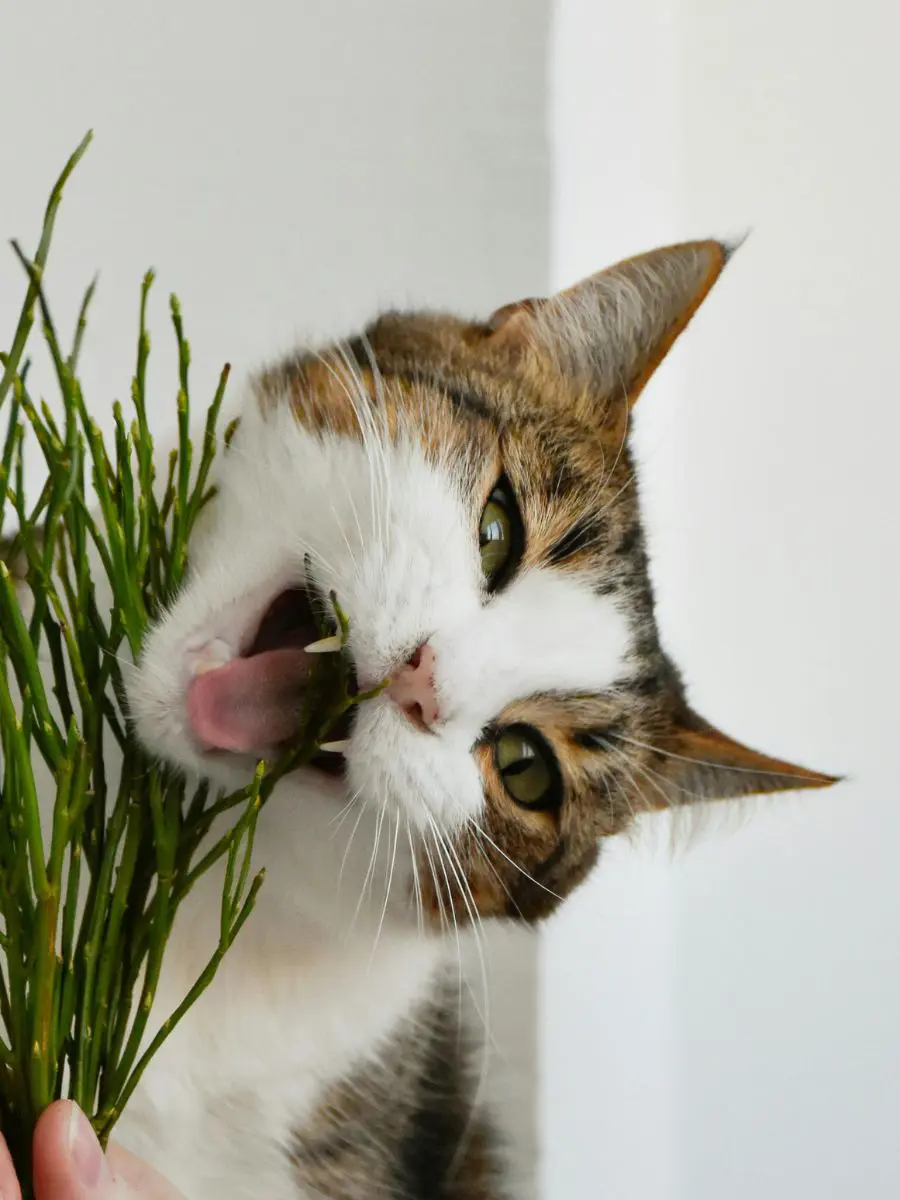
Pros Of Cats Eating Grass
- Indigestion Aid: Being a perfect predator, grass helps to digest fur and other things like bones.
- Natural Laxative: In cats, it can function as a natural laxative and thus pass hairballs, being involved in the etiology of several gastrointestinal problems.
- Additional Nutrient: Folic acid in the plant helps in the synthesis of hemoglobin and general health.
- Behavioral Enrichment: Grazing might be a behavior linked with the gratification of instincts and the provision of mental stimulation.
Cons Of Cat eating Grass
- Possible Toxins: Herbicides and pesticides used in treating plants can be toxic to cats
- Indigestion: It may cause some pets to vomit or stomach upset, especially at times.
- Choking hazard: These long strands can, if ingested, become potentially obstructive to the gastrointestinal tract or even a choking hazard.
- Behavioral Problem: Eating too much grass may indicate a nutritional deficiency or hidden medical problem.
Top Lists

